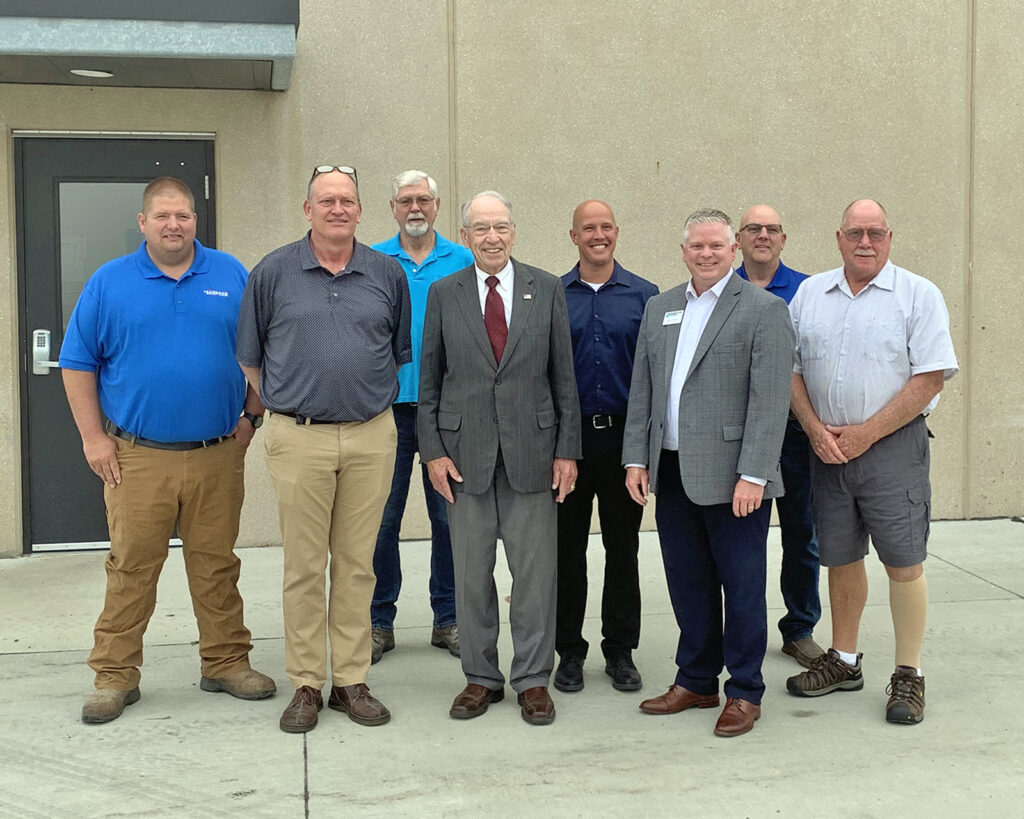Utilities on the agenda as Senator Grassley visits Sanborn

U.S. Sen. Chuck Grassley (R-Iowa) made a stop in Sanborn August 3 to discuss the various concerns of municipal electric utility representatives regarding federal legislation. The meeting was held at Vander Haag’s Yesterday’s Memories and Truck Museum and included utility managers, utility board members, city council members and Missouri River Energy Services. Communities represented were Sanborn, Primghar, Orange City, Sioux Center, Rock Rapids, Denison and Atlantic.
“It was a very worthwhile discussion,” commented Grassley. The Senator answered a few questions during the meeting and told them about his connection with municipal utilities in Cedar Falls. The discussion centered around the bigger issues in Washington about the certainty of electricity. Explained Grassley, “In other words, are we going to have brownouts or not; the tax issues that go with incentives for it and then some problems with the various government bureaucracies that control the running of hydroelectricity, things of that nature. But I think (the attendees at the meeting) have the same concern that I have: that this direction of the Biden Administration on global warming – and there is global warming but how do you attack it – I think they see it as I see it, that it’s being attacked too aggressively and not in a very realistic way that, down the road, we’re going to have brownouts. Now, they didn’t use the words brownout. Those are my words. But people, when you flip the switch, you want to make sure the light goes on.”
Prior to the meeting Senator Grassley toured Sanborn’s modern Water Treatment Plant. City officials and staff discussed with the Senator the importance of tax-exempt financing and pointed out that Sanborn residents will save $750,000 in interest costs over the life of the loan for the Water Treatment Plant. “Senator Grassley has been a champion for tax-exempt financing over the years,” noted Sanborn City Administrator Jim Zeutenhorst. “It was good to point out the savings to our citizens because we were able to use tax-exempt financing.”
